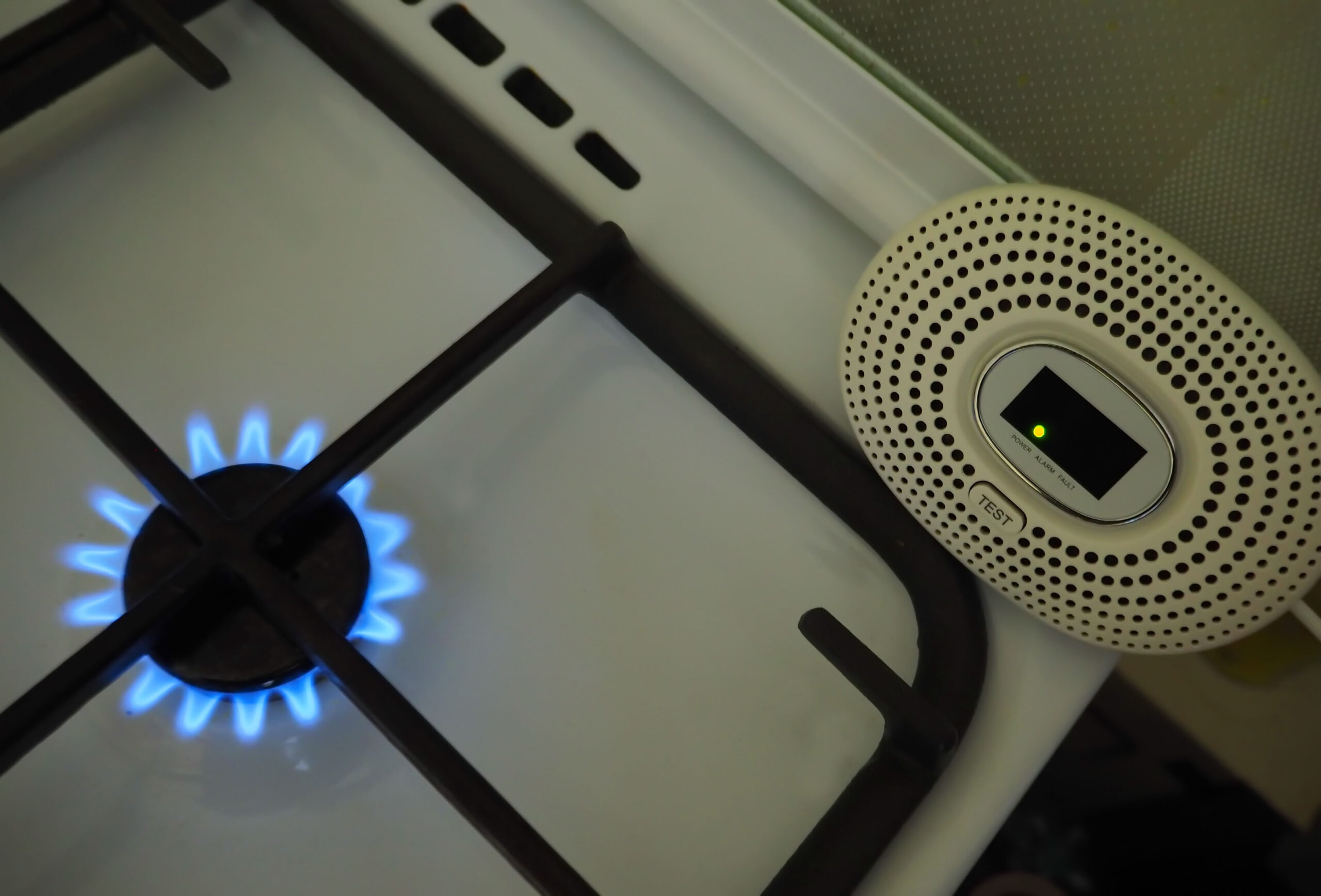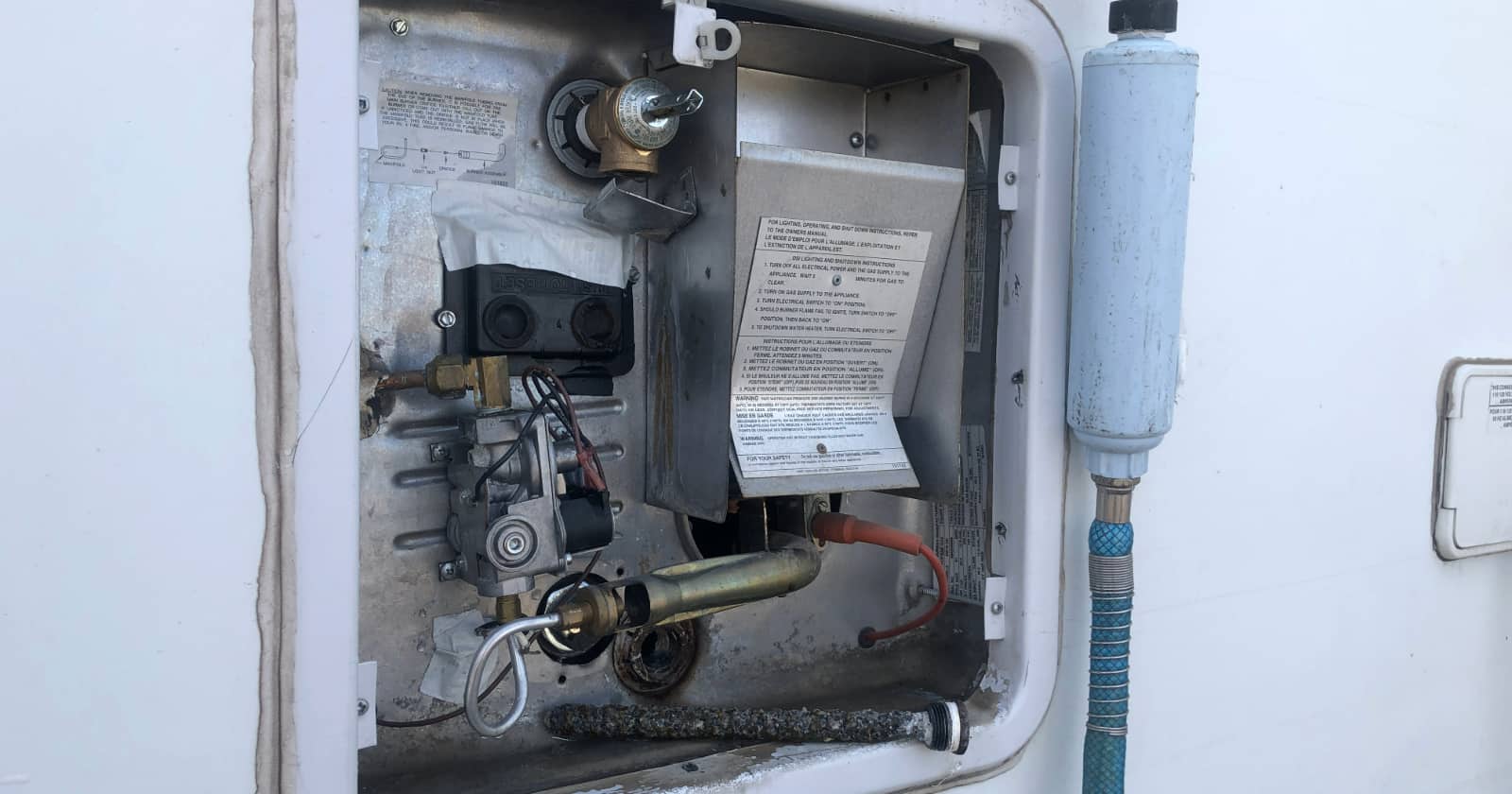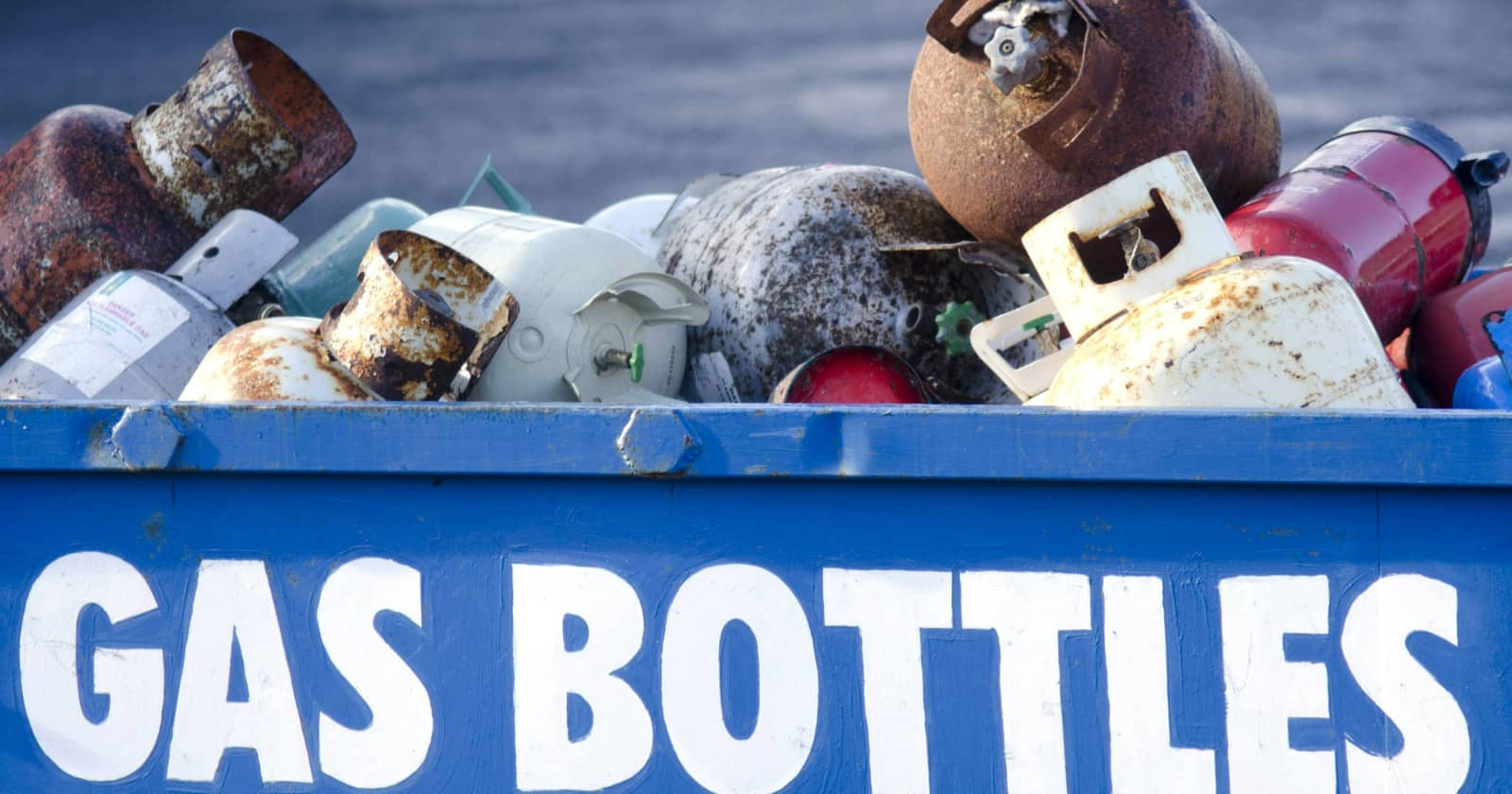
How Do RV Propane Alarms Work?
Propane alarms are an important safety feature installed in RVs to warn of propane leaks. Their high-pitched squeal is an alarming thing to wake up to.
Commonly referred to as LP (liquified petroleum) detectors, these alarms are monitoring for propane. However, liquified petroleum also includes gases such as butane and propylene.
Any time an RV propane alarm goes off, it should be treated as a leak situation and taken seriously. Propane alarms are sensitive, however, and do go off falsely.
It is important to understand how and why they may go off without a leak present so you can avoid this happening, causing you and your family to ignore a possibly dangerous situation.
The first thing you have probably noticed about your RV propane alarm is that it is located low, somewhere close to the floor. This is because propane is heavier than air, and it will settle in low areas.
When the detector senses a certain concentration of gas to air, it alarms people with both an audible and visual alarm.
The science behind it is simple. Propane removes oxygen from the air, and when the concentration of air is dropped below a certain level, the alarm sounds. The unit will be hardwired to the 12-volt electrical system of your RV using battery power, so it will work even if you’re not plugged into shore power.
Your RV propane alarm will have a mute and a reset button. The reset button can be used to reset the alarm after it has been set off. There should be a steady green light, and no beep when it is reset and in operation mode.
The mute button can be used to temporarily quiet the alarm. This shouldn’t be used to ignore the alarm, but rather to mute it during end-of-life beeping until you can promptly change it.
What falsely sets off a propane alarm?
As sensitive as they are, RV propane alarms can go off for many reasons. So, why is your RV propane alarm going off randomly?
Many sprays such as cooking spray, Febreze, sunscreen, bug spray, and cleaners can all set off your alarm. A pet sleeping on the floor laying against the alarm will set it off due to the fact that they are blocking fresh air from entering the monitor. A dirty propane alarm with pet hair, dust, and debris from sweeping may also be enough to sound your alarm.
Propane detectors are only good for 5-7 years after the date of manufacture. At this point, many will have an end-of-life alarm that will go off. The beep will be a different pattern than the alarm beep. The date of manufacture will be on the back of the detector and should be replaced with a new monitor when needed.
The propane detector is connected to the 12-volt electrical system, and low or dead RV batteries will cause the unit to not work properly. A slow beep is more common than a full-on alarm; however, it should still be investigated to fix the issue. Most units are also fused either inline or at the fuse panel, so check for blown fuses as well.
These detectors are highly sensitive for a reason. Any change in the concentration of fresh air to the monitor will set the alarm off for your safety.
Tips for ensuring proper function
It can be annoying to not know why the propane alarm is going off in your camper. It can also be a safety concern if it is going off falsely to the point where you begin to ignore and just mute or reset it.
First, make sure your propane detector is within its life cycle. Replace the alarm every 5 years regardless of function.
Test your unit for propane detection. The test button ensures the red light and alarm work, but you should test with gas when possible. Using a lighter or small torch, expose the monitor to gas (not flame, the gas needs to be not being burned); the alarm should go off within a few seconds.
Keep the area around the unit clean and free of dust and debris. It can be carefully blown out with air should dirt accumulate.
If your unit is not powered on, check the wires on the back for proper connection and that it is receiving 12-volts from your RV battery.
What to do if your RV propane alarm goes off
It’s important to not only know why your RV propane alarm is going off but also to know what to do when it does go off.
An RV propane alarm should always be taken seriously. A propane leak can cause unconsciousness, which could cause dangerous falls. Unburned propane can also cause explosions and fire.
When your RV propane alarm goes off, everyone should exit the RV immediately. If possible, slide a few windows open on the way by and leave the doors open when you leave.
Once outside, immediately close your propane supply. Wait for the RV to air out a bit before re-entering. Using a handheld gas monitor will confirm the presence of gas or not and can be used to locate a leak. The handheld is also good to check for leaks at the propane tanks.
When back inside, make sure a stove knob wasn’t left open by mistake. This unburned propane would have caused the alarm to go off. If the alarm is reset and goes off when the propane is opened again, the RV needs to be checked for leaks. If you are not comfortable and or don’t have the tools, this step should be left to a professional.
RV propane alarms are loud and annoying for a reason. It should always be taken seriously when it goes off. Often, it is a false alarm, but now you can figure out why and try to prevent further false alarms.
Make sure you keep track of all your RV maintenance and repairs with an online tool such as RV LIFE Maintenance. Not only can you keep all of your documents in one place, but you’ll also receive timely reminders when maintenance is due to help you avoid costly repairs and potentially serious accidents.
Continue reading:



